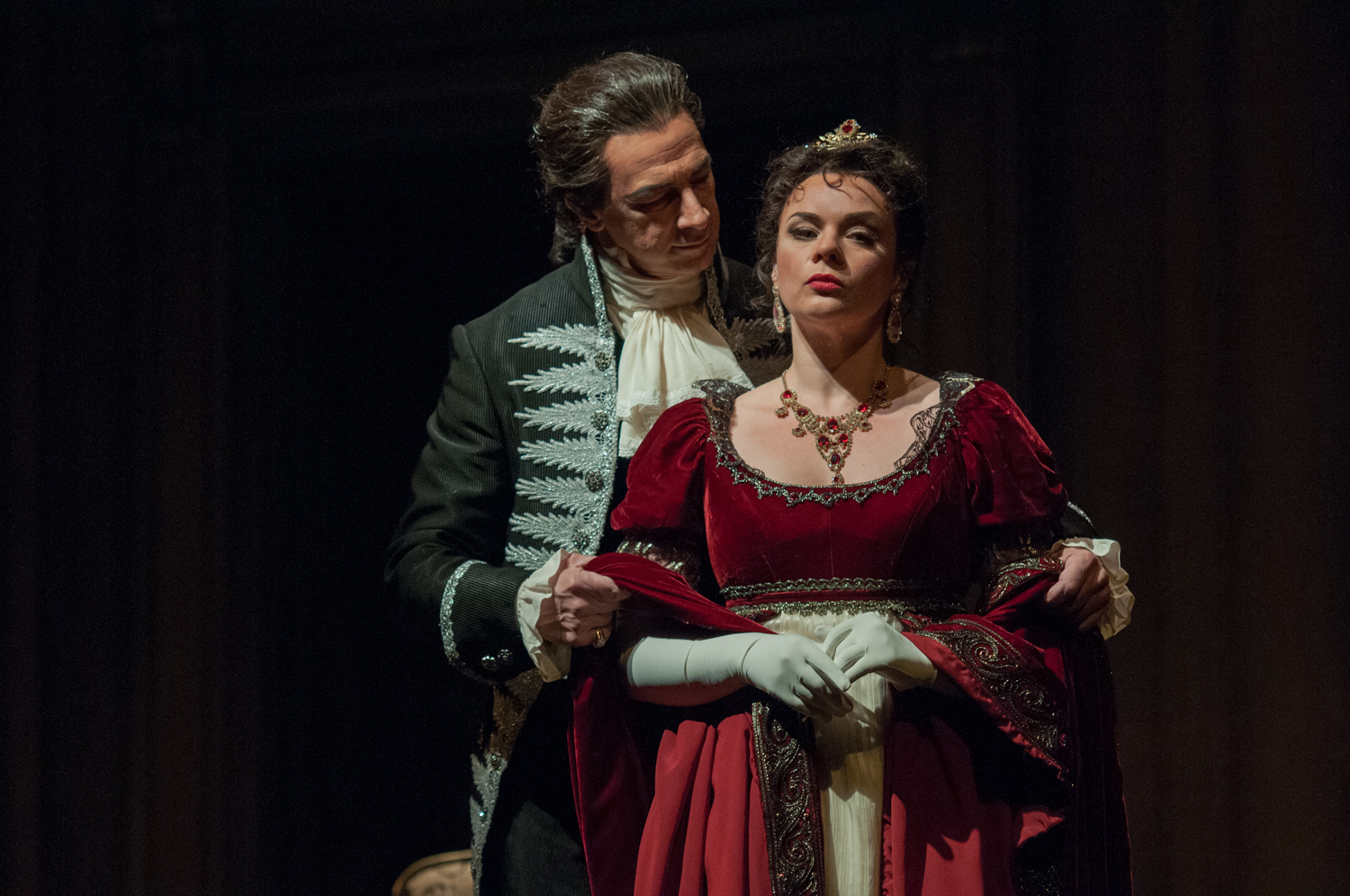Here’s a question: Does anyone actually like Tosca? Not Puccini’s 1900 opera, I mean, but its title character. At Seattle Opera’s Saturday-night performance, Ausrine Stundyte proved a courageous actress, adeptly playing up Tosca’s not-so-attractive side—her coquettishness and jealousy—as well as her later heroism. The soprano’s one vocal issue was a vibrato that, curiously, sounded fully under control only in Act 2; before and after that, it could get a bit wide and wobbly. But in between, it was beautiful, embellishing rather than dominating her vocal lines; her big solo in this act, “Vissi d’arte,” was gorgeous—passionate and thoughtful, artful and emotionally direct.
Singing her lover Cavaradossi, Stefano Secco’s voice has a fairly baritonal color, with little of the bright “ping” (squillo is the technical term) familiar in many tenors. This is an observation, not a complaint; richly easy on the ear, it lacked nothing in carrying or penetrating power, with an impressive effortlessness in his long, loud, and high (money is the technical term) notes.
“Charm” is not a word often used to describe performances of the role of Scarpia, the black-hearted police chief who comes between the two, but it was enjoyable to hear how and when Greer Grimsley let his voice go a little “Italian”—adding just hints of the scoops, slides, and sobs traditionally associated with the idiom. (He’s most often heard at Seattle Opera as Wotan in Wagner’s Ring, which is the last place you’d want to hear that kind of effect.) He and Stundyte rightfully earned unexpected mid-act applause after the scene in which she stabs him—probably because it was so powerfully staged and sung, but maybe also because the audience was cheering the villain’s death English-panto-style.
gborchert@seattleweekly.com
TOSCA McCaw Hall, 321 Mercer St. (Seattle Center), 389-7676, seattleopera.org. $25 and up. Ends Jan. 24.







